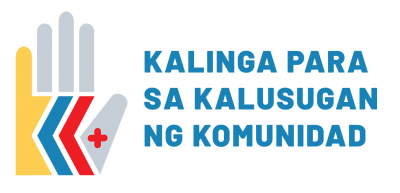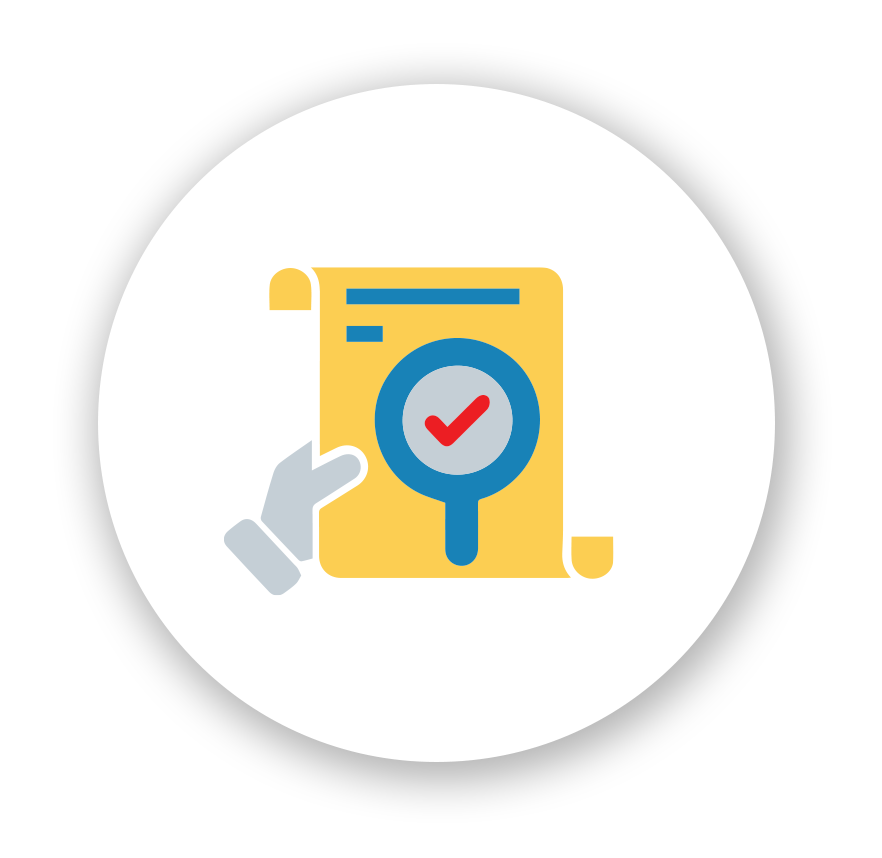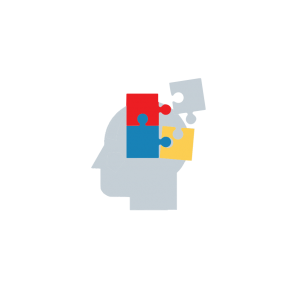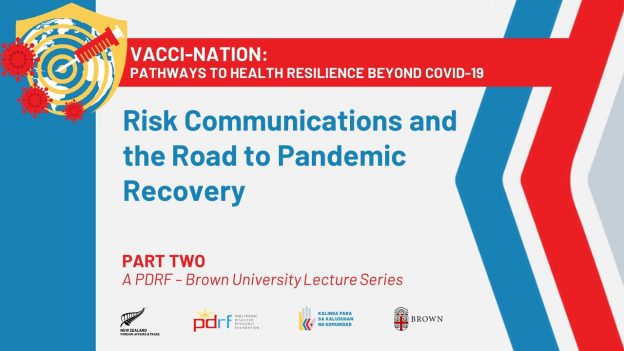

The Kalinga para sa Kalusugan ng Komunidad or Project K3 is an initiative of PDRF and New Zealand Ministry of Foreign Affairs and Trade Aid Programme that aims to strengthen the health care capacities of local government units, health care institutions, and local communities, across the country to address COVID-19 immediate and future needs.
ACTIVITIES OF THE MONTH
NEW
Resilient Mental Health and Well-being
This course teaches you the basics of psychological well-being, as well as the knowledge and skills you need to give…
HOT
Emergency Operations Center Design and Management (Level 1)
The Emergency Operations Center Design and Management Level 1 Course aims to present a technical roadmap to help organizations establish…
HOT
Health Resilience
Health Resilience is the ability of health systems to continue to deliver services in the face of constant challenge and…
VACCI-NATION: A Brown University Lecture Series
BRIDGES AND BARRIERS IN VACCINE DEPLOYMENT: LESSONS LEARNED AND PRACTICAL APPLICATIONS
In 2021, the world continues to contain and mitigate the spread and infection of COVID-19. The pandemic has exposed vulnerabilities…
RISK COMMUNICATIONS FOR IMPLEMENTING COVID-19 VACCINATION PROGRAMS
As the country continues to battle the COVID-19 pandemic, the development of vaccines against the disease signaled an end to…
MORE
ON-GOING: Batch 3 12 LGUs 10 HOSPITALS

Public Service Continuity Planning
How do you protect your organization's assets from any type of disruption?
COVID-19 ICT TOOLS

Tanod Kontra COVID-19 LGU Training Course
Learn about passive and active surveillance for COVID-19 response.
RESOURES

HEALTH CARE INSTITUTES
Build your capacity through training and PPP (Policy, Plan, Program) updating.

LOCAL GOVERNMENT UNITS
Learn how to make your policies, programs, plans more pandemic responsive!
Explore the library
From self-paced courses to webinars on the vaccination program plans, the K3 Resource Library is made available for partners to support organizations’ training and implementation programs
Be a K3 resilience champion with us today!
ABOUT THE PROJECT
The COVID-19 pandemic has already infected over 7 million people and killed more than 400,000 people around the world with the number still increasing every day. As the virus spreads, the Philippine health system is ill-equipped to deal with the need to reduce the transmission and promote outbreak control.
Aligning with the System Building Blocks framework of the World Health Organization, Project K3 will focus on three of the six system blocks:
(1) Service Delivery,
(2) Health Workforce, and
(3) Health Information System
Project K3 is collaborating with key international and local health organizations to target service delivery, health workforce, and health information systems gaps.
The team has begun conducting a baseline assessment and initial coordination with the target areas in Luzon, Visayas, and Mindanao to facilitate course development and IEC production.
The phase 1 of the project is targeted to be fully-implemented by the first quarter of 2021.
PDRF, New Zealand launch partnership strengthening LGUs’ COVID-19 infection prevention and control
17 SEPTEMBER 2020, MANILA—Continuing its efforts to strengthen the Philippine health system and its pandemic response and recovery capacities, the Philippine Disaster Resilience Foundation (PDRF) signed an agreement with the New Zealand Ministry of Foreign Affairs and Trade Aid Programme to launch Project K3 or Kalinga para sa Kalusugan ng Komunidad, which brings together the technical expertise and resources of the private, public, and humanitarian sectors to help fifteen local government units across Luzon, Visayas, and Mindanao flatten the curve. “COVID-19 continues to challenge and overwhelm health systems and communities across the world, including the Philippines. These challenges are deeply felt by our frontliners and healthcare workers. This project, PROJECT K3: Kalinga para sa Kalusugan ng Komunidad, is New Zealand’s contribution to strengthening local health capacities to address COVID-19 immediate and future needs,” said New Zealand Ambassador to the Philippines Peter Francis Tavita Kell. In collaboration with key international and local health organizations, Project K3 will target service delivery, health workforce, and health information system gaps by training a total of 10,000 health system stakeholders across the Philippines, distributing 5,000 personal protective equipment, developing e-learning courses and publications for healthcare workers, health facilities, and local government units (LGUs), and coming up with an online resource mapping tracker that will help partner LGUs plan and respond better to COVID-19. Read MoreProject PAG-ASA
PROJECT PAGASA is a joint initiative of the Center for Human Rights and Humanitarian Studies at the Watson Institute of Brown University, Project HOPE, and Philippine Disaster Resilience Foundation. This 2020 COVID-19 training engaged 90 Filipino health workers from across the country and trained them on core competencies, including biology and transmission mechanisms; infection prevention and control; contact tracing; screening and triage; diagnosis and management; stabilization and resuscitation; health facility operations and surge capacity; and risk communication and public health messaging. The training utilized the training-of-trainers model to quickly build a cadre of competent instructors who can teach the material to other health workers.
PROJECT T3
T3 (for Test, Trace, Treat) is the private sector-led initiative that was formed in April 2020 to support the Inter-Agency Task Force on the Management of Emerging Infectious Diseases (IATF-EID), the Department of Health and the NTF in their efforts to combat COVID-19.
To date, it has helped to strengthen the country’s anti-pandemic capabilities by constructing isolation centers, donating testing equipment and PPEs, helping to launch the One Hospital Command Center and assisting with data management requirements. It has helped to increase the country’s testing laboratories from 17 to 162 testing labs throughout the country.”
“To date, it has helped to strengthen the country’s anti-pandemic capabilities by constructing isolation centers, donating testing equipment and PPEs, helping to launch the One Hospital Command Center and assisting with data management requirements. It has helped to increase the country’s testing laboratories from 17 to 162 testing labs throughout the country
PROJECT KAAGAPAY
Launched in partnership with Zuellig Pharma, ABS-CBN, and Metro Drug, Kaagapay is a fundraising initiative that aims to provide much needed medical equipment such as personal protective equipment (PPE) and ventilators for hospitals in the Philippines.
Due to the rising number of COVID-19 cases, the Philippines is facing a medical equipment shortage, which puts the lives of frontliners at risk and interferes with the provision of care for those that are seriously ill. Kaagapay seeks to address this need by utilizing pooled procurement mechanisms and supply chain processes in providing ventilators and PPEs for the healthcare sector. The initiative, which began its initial run last 31 March 2020, also includes test kits and other life-saving medical equipment.
PARTNERS

BEHIND THE TEAM








K3 Partner Briefing
FAQs
Yes, all the activities under Project K3 is free and available for your participation.
Sorry to hear that! Please send a message to iadapt@pdrf.org.ph
The Philippine Disaster
Resilience Foundation (PDRF), established in 2009, continues to be the private
sector’s vehicle for disaster risk reduction and management. Composed of more
than 80 corporate members from different industries, PDRF works with the
country’s largest businesses, local and international partner organizations, as
well as micro and small and medium-sized enterprises in promoting the culture
of resilience-building. More information at: https://www.pdrf.org/
NZAID – New Zealand Aid Programme delivers New Zealand’s official support for developing countries.
The purpose of New Zealand’s aid is to develop shared prosperity and stability in the Pacific and beyond, drawing on the best of New Zealand’s knowledge and skills. We support sustainable development in developing countries to reduce poverty and contribute to a more secure, equitable and prosperous world.
MFAT staff in Wellington and at posts are responsible for managing the New Zealand Aid Programme, working with a wide range of partners.









